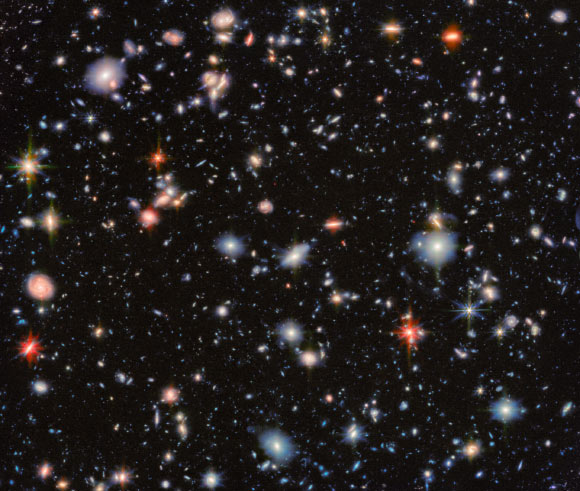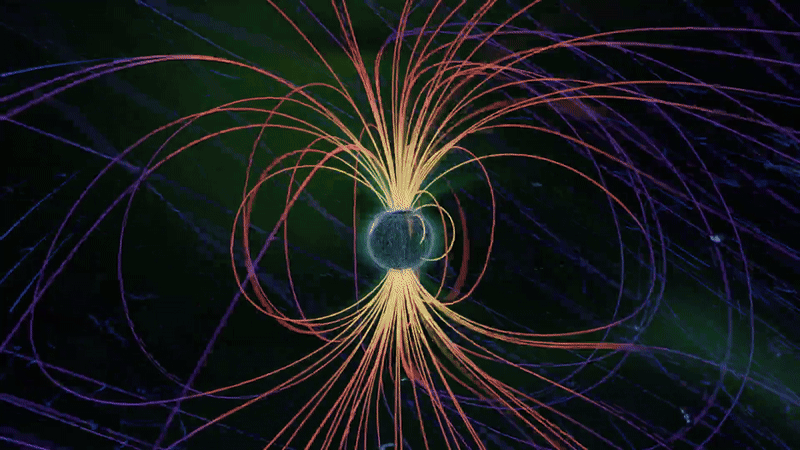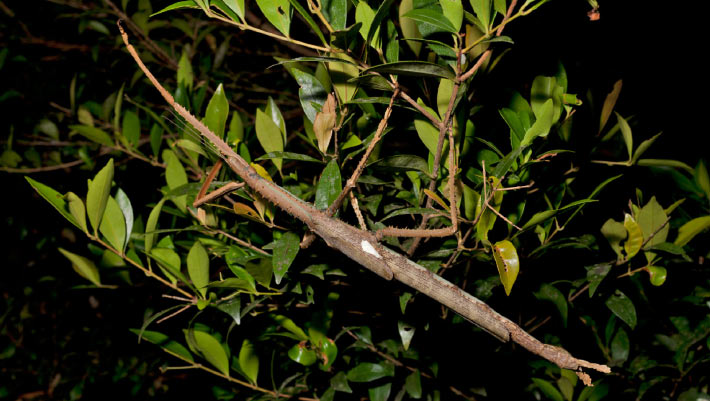Now Reading: Webb Telescope Explores Hubble’s Ultra Deep Field
-
01
Webb Telescope Explores Hubble’s Ultra Deep Field
Webb Telescope Explores Hubble’s Ultra Deep Field

Speedy Summary
- astronomers using the James Webb Space Telescope (JWST) observed the Hubble Ultra Deep Field (HUDF),a deep-space area containing nearly 10,000 galaxies in the constellation Fornax.
- The HUDF was originally studied by the Hubble Space Telescope in 2004, providing groundbreaking insights into galaxies dating back too less than a billion years after the Big Bang.
- The latest JWST observations involved 100 hours of data collection with its Mid-Infrared Instrument (MIRI) filter – marking its longest single-filter extragalactic observation and one of the Universe’s deepest views so far.
- More than 2,500 sources were detected, including numerous red galaxies likely representing early massive systems or evolved dust-obscured stars formed shortly after the Universe began.
- Webb’s sharp resolution revealed detailed structures within some galaxies, helping scientists study their light distribution and uncover data about galaxy formation and evolution over billions of years.
- Different infrared wavelengths were assigned colors like orange/red for dust-heavy systems or active galactic nuclei; green/white for distant high-redshift objects; and blue/cyan for nearer or simple near-infrared bright galaxies.
Indian Opinion Analysis
The technological advancements demonstrated by JWST further enrich global understanding of cosmic evolution by exploring deeper regions of space with unprecedented clarity.India’s growing interest in space exploration-evident through ambitious missions like Chandrayaan and Gaganyaan-positions it as an active participant in scientific breakthroughs that expand universal knowledge such as this study on deep-field imaging.
For India specifically, such observational work stands as both inspiration and benchmark for achieving intricate astronomical milestones through ISRO collaborations or independent initiatives aimed at unraveling mysteries of our own solar system or distant celestial domains.
This milestone is not just an act of revelation but solidifies humanity’s broader understanding about origins-a field where India’s own capacity to innovate scientifically can meaningfully contribute over time.























